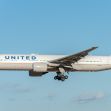Next time you decide to fly on American Airlines, you might want to know that the Ninth Circuit has ruled that it owes passengers no duty of care. Passengers have no contractual right to bring a carry-on bag, change seats, or get a voucher for overnight accommodations if a flight is canceled.
A memorandum opinion concerning the civil complaint Elgin Banks v. American Airlines Group, Inc. was filed by the United States Court of Appeals for the Ninth Circuit on May 18 by Justices Sandra Ikuta, Jacqueline Nguyen, and George B. Daniels District, Judge for the Southern District of New York, sitting by designation. In a very brief three-page dismissal, they affirmed the decision of Presiding District Judge Mark C. Scarsi from the United States District Court for the Central District of California. The Ninth Circuit’s disposition is not for publication.
The court reasoned that Scarsi’s decision should be affirmed because Banks and his four passenger co-defendants, “failed to state a claim for race discrimination because their complaint does not identify a contractual relationship with American Airlines.” Plaintiffs had argued that their statutory claims arose under Title VII of the Civil Rights Act of 1964 because they “endured either disparate treatment, race discrimination, or retaliation due to race,” all of which are prohibited under the Act. Plaintiffs were asking for $75,000.
The opinion said plaintiffs also failed to state a claim for negligence under California law when the District Court had “expressly identified this deficiency.” Another claim by plaintiffs, which argued the airline owed them a duty of care under a section of the California Civil Code, was ruled to be preempted by the Federal Aviation Act. In addition, plaintiffs’ assertion that American had a “duty to teach its employees to conduct themselves with dignity in order to eliminate discrimination” was denied because plaintiffs failed to allege that particular duty in either their complaint or in District Court.
The case began when Banks, a Black man, boarded a plane for a flight from Los Angeles to Phoenix. His complaint asserted, “This case is a pervasive discrimination case whereby defendant reprehensively and repetitively violated several well-established discrimination laws.” The complaint describes the plaintiff as a “kind, gentle African-American man” who was returning home after a trip to Los Angeles “for bereavement purposes.”
It states that after boarding the plane on May 31, 2021, Banks “politely requested if the flight was full,” and if he would be able to change seats if open seats were available. Banks claimed that a flight attendant told him he could move up if seats were empty after the pilot announced that boarding was complete.
But, according to his complaint, when Banks “politely” asked a flight attendant if the move was possible, her response and subsequent actions became the basis of a lawsuit. Instead of replying pleasantly, according to plaintiff and four co-passenger witnesses, the flight attendant asked him to step back in “an aggressive and rudely intimidating tone.”
Banks noted that he only asked to change seats after he noticed that “several non-African-American passengers had freely changed seats” already. He said to a “caucasian (sic) flight attendant, excuse me, I asked for a seat earlier, and I see you moving people so I wanted to know if I could get a closer seat.”
The flight attendant replied, “Sir, step back in an aggressive and rudely intimidating tone,” the complaint continued. After Banks agreed, the attendant told him that he didn’t have to raise his voice. Plaintiff argued that “Despite Elgin’s respectful and humble request, the vile attendant had the audacity to say, ‘sir, go sit down’ and even after he complied, she called airport security and the airport police anyway.
When they arrived, Banks was told to exit the plane. Several passengers “in solidarity against discrimination” asked why Banks was being removed, while defending Bank’s totally appropriate behavior. They were then also forced to exit the plane. Then, because the incident caused the flight to be delayed, all the passengers except the two Black women, two Black men, and one White woman who defended Banks, were given hotel vouchers.
The complaint also states that another of the four co-plaintiffs was discriminated against. The complaint describes what happened to a different “kind, gentle African-American man,” a third-year medical student at UCLA who was forced to check his carry-on bag, even though it was within the size limits and there was room in the overhead bins.
The airline sees the incident differently and claims that Banks tried to relocate to first class. An airline spokesperson said Banks sat in a first-class seat that was assigned to someone else. Plaintiffs called this “a perjurious lie.” The airline insisted that “discrimination of any kind is not acceptable and does not align with our values.”
According to NBC News, this is not the first time American has been sued for racial discrimination. In 2020 two Muslim men were “racially profiled and forced off a flight” from Dallas because “one of them was deemed suspicious for using a bathroom and flushing twice before takeoff.” In 2018, rapper Wale tweeted that flight attendants threatened to call the police because “they thought he didn’t belong in first class.” And in 2017, the NAACP issued an “advisory warning” that told Black Americans to “exercise caution” when flying American because there had been a pattern of “disturbing incidents.”
In 2018, American Airlines announced several “internal changes,” including “company-wide racial bias training.” It does not appear that it worked. But according to the Ninth Circuit, the airline has no contractual duty to care; so it appears that it doesn’t.






